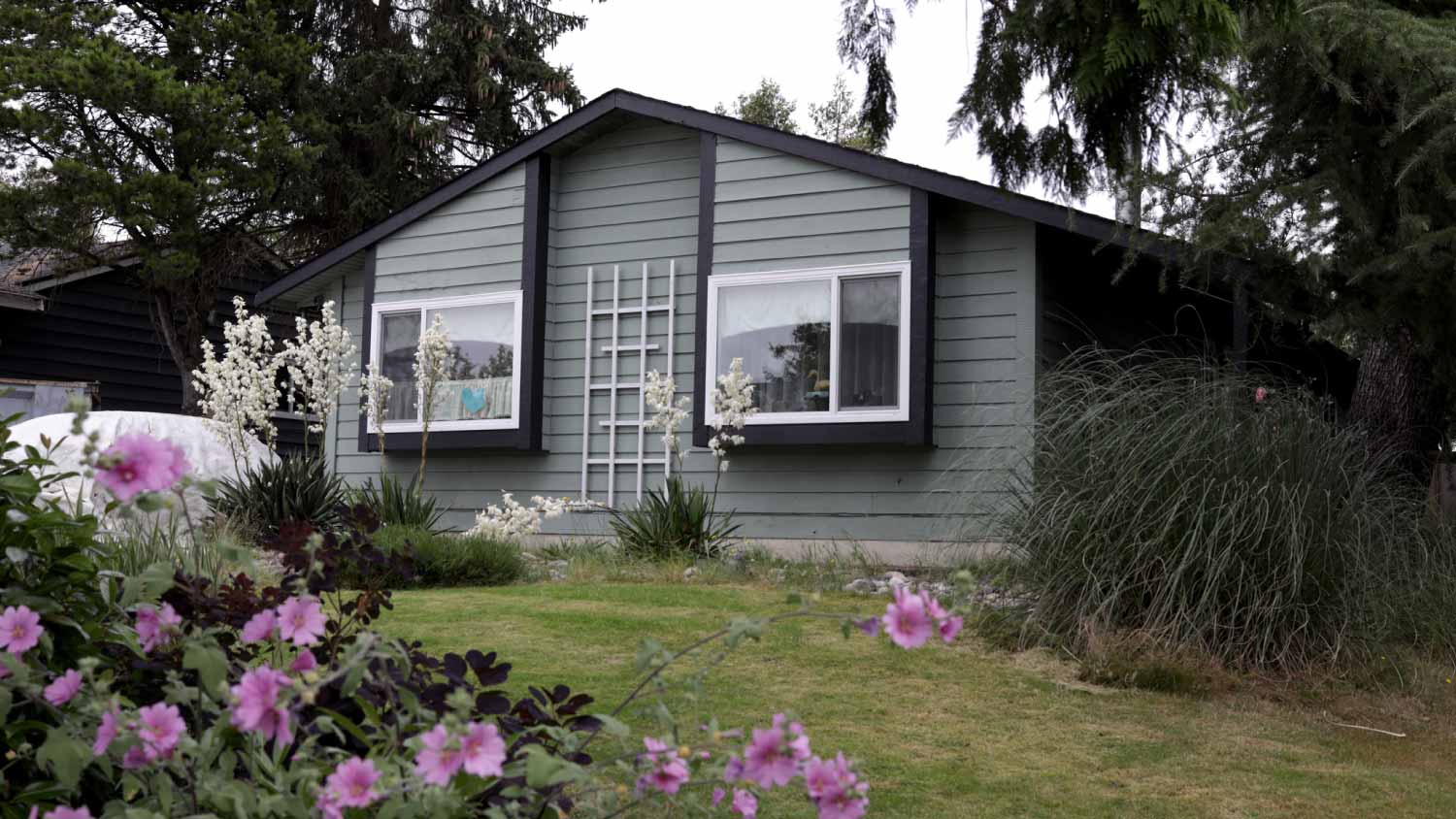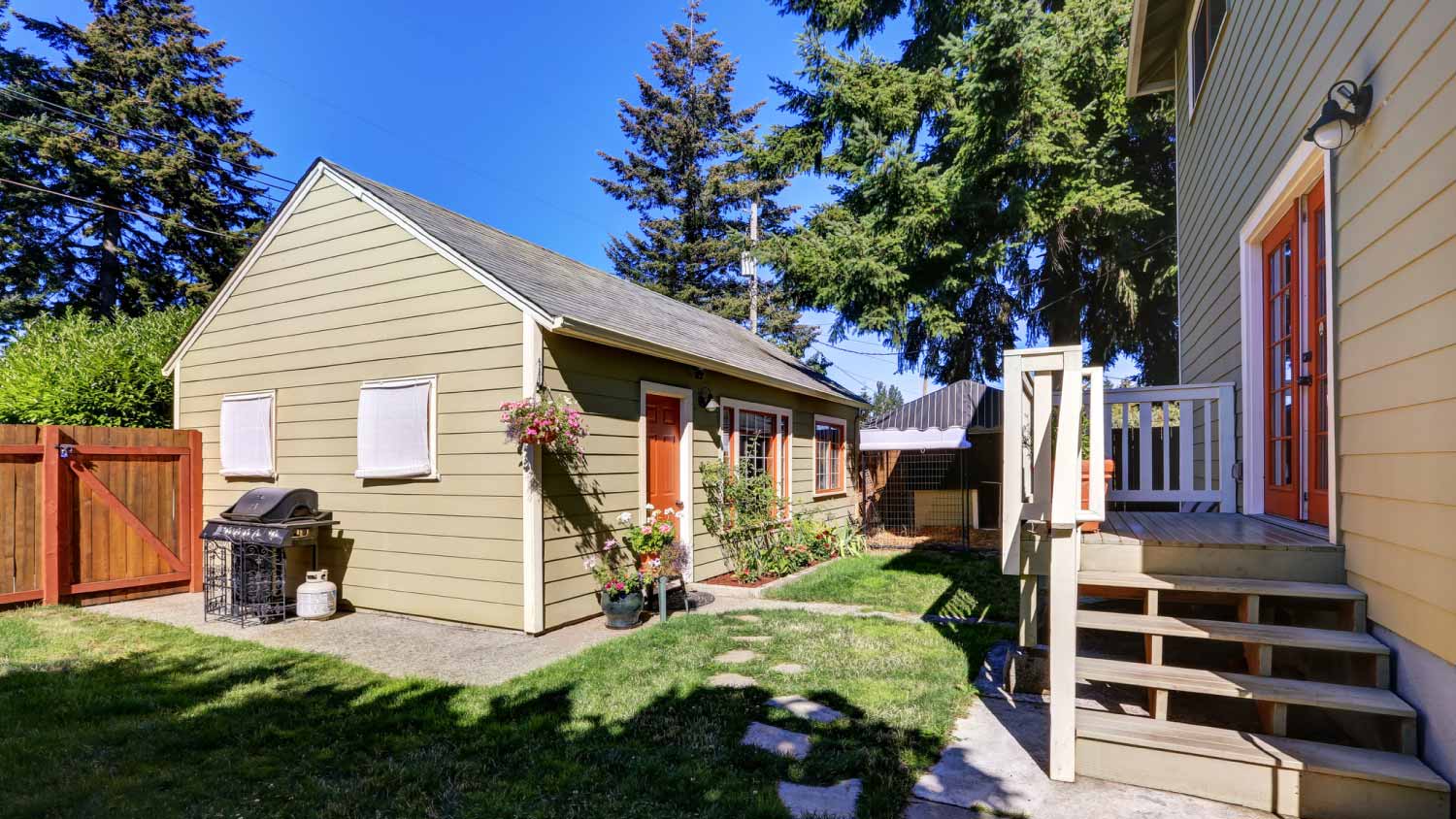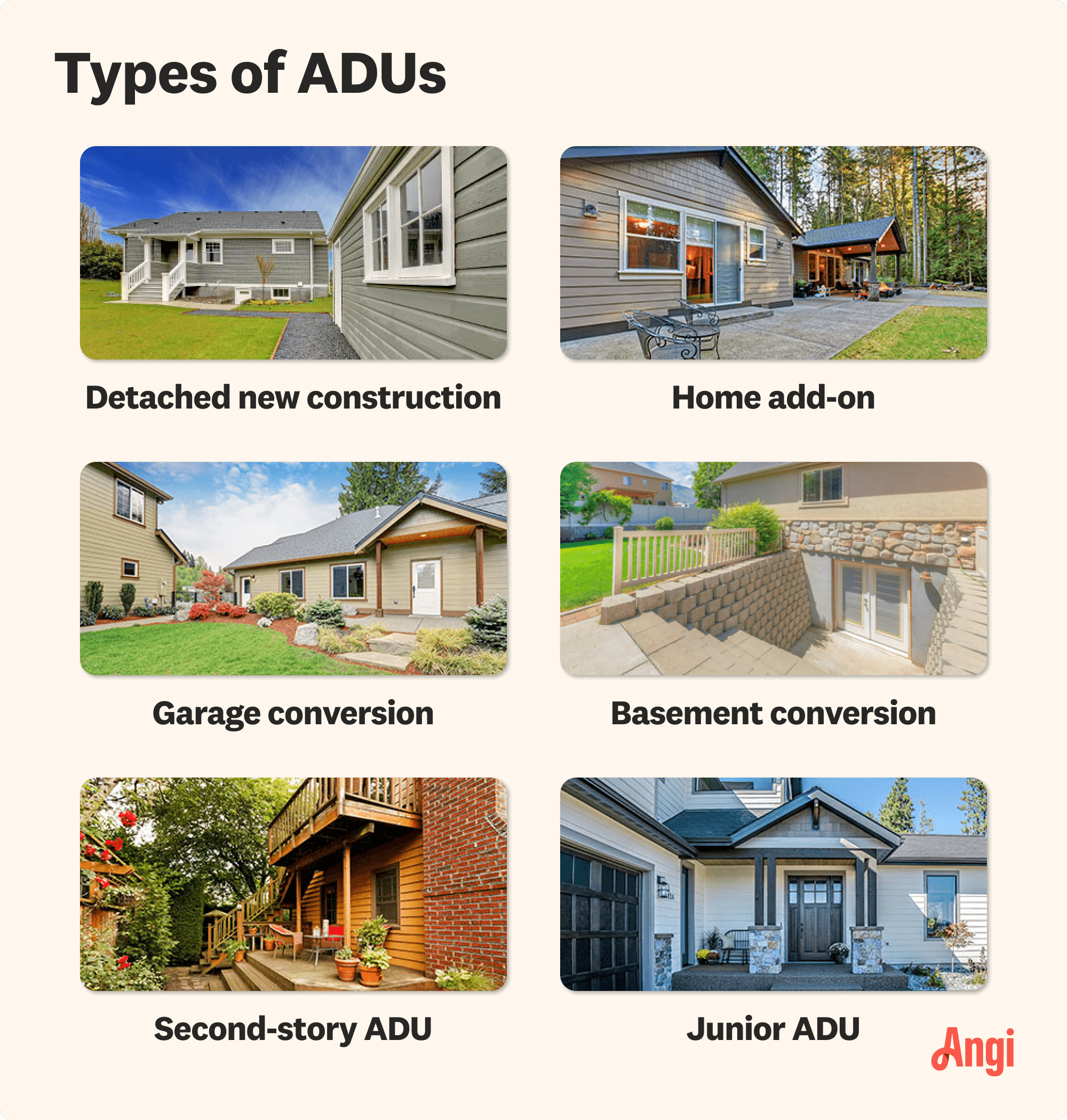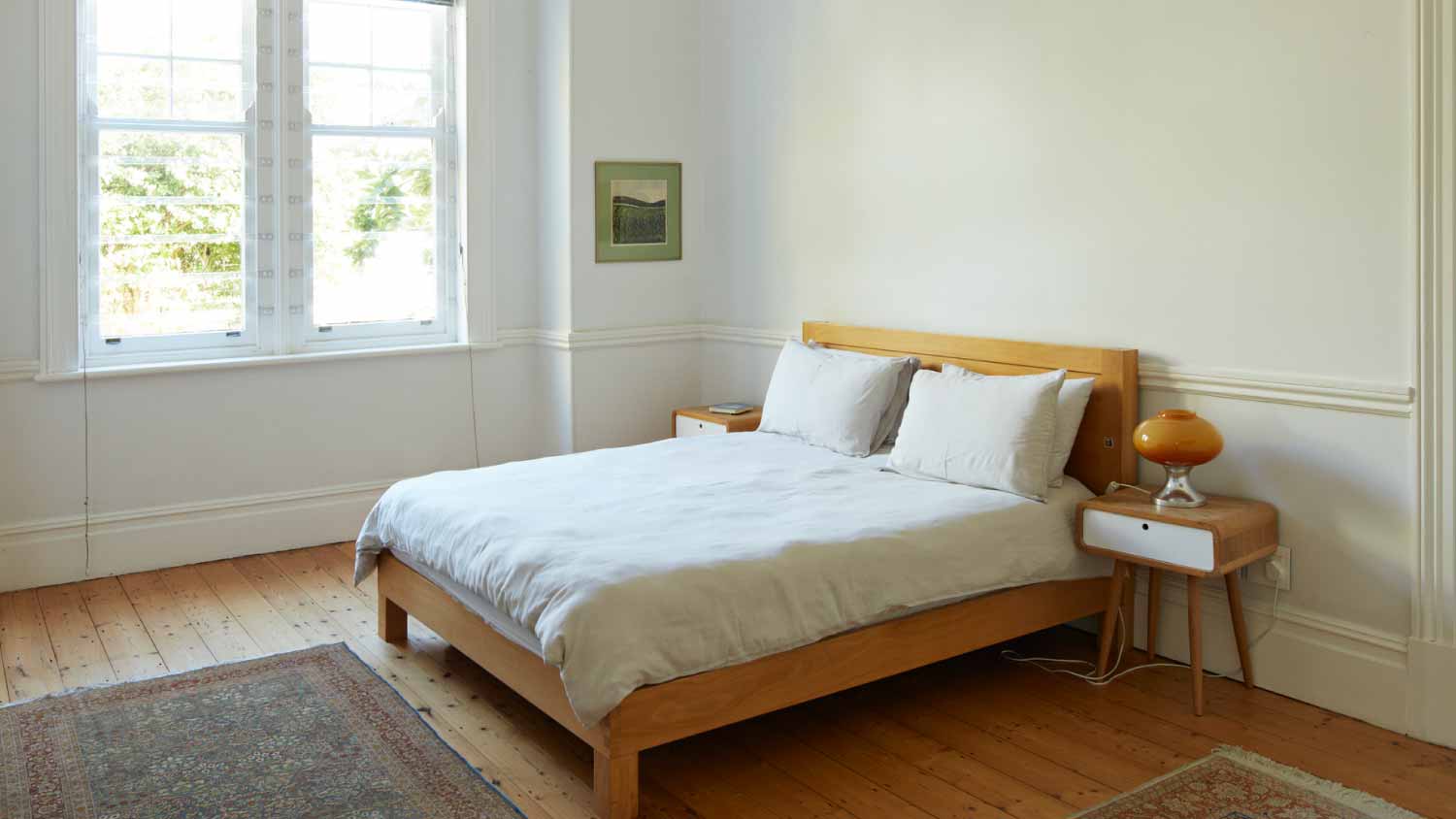
Remodeling your bathroom can add significant value to your home. Your bathroom remodel cost will depend on size, fixtures, materials, labor, and other factors.
Learn which is a suite-r deal


An ADU is a dedicated living space that offers maximum privacy.
An in-law suite may share an entrance, bathroom, or living space.
In-law suites are for family or friends, while you can rent an ADU.
ADUs are harder to permit but may provide additional income.
Many people confuse the terms “accessory dwelling unit” (ADU) and “in-law suiteMany people confuse the terms “accessory dwelling unit” (ADU) and “in-law suite and some even use them interchangeably. There are some important differences, though, from how you can legally use them to how they’re set up on your property. Let’s look at the differences between ADUs and in-law suites to help you decide which is best when you’re ready to create a new living space or partition off some of yours.
ADUs are completely private units on your property with a separate entrance, a kitchen, and a bathroom. You can use them to house family and friends who visit, but you can also rent them to tenants. An in-law suite is attached to your main unit and may share a bathroom, kitchen, or even an exterior entrance. They’re spaces more appropriate for providing family and friends with a semi-private place to stay.

An ADU is a self-contained unit on your property where someone can live and remain totally separate from your main unit. They could be in standalone structures like bungalows in your yard, or they could be attached to your house. They have their own bathrooms, kitchens, and entrances.

| Pros | Cons |
|---|---|
| Complete privacy | More expensive |
| Rentable | Harder to permit |
| Can be detached | Can lower value |
Best for: Homeowners looking to rent out a portion of their home for additional income
The biggest benefit of an ADU over an in-law suite is the flexibility. You can have a family member or friend stay in the unit, but you can also rent the space to a tenant to earn some extra money each month.
ADUs also offer better privacy. Anyone staying in the unit, whether it’s a tenant, a family member, or a friend staying long-term, will have their own space that doesn’t interfere with yours.
Unlike in-law suites, ADUs can either be attached to your home, like in a basement or a space over the garage, or standalone, as in the case of a detached ADU or tiny house in your yard.
ADUs are more expensive to set up, especially if you’re building a detached space in your yard. Even if you build inside your home, an ADU needs a dedicated bathroom and kitchen, so you’ll spend more on the initial build.
ADUs are also much more challenging to get permits for, regardless of whether they’re attached or detached. Some municipalities will issue permits for in-law suites or even “mother-daughter” houses, which have two completely separate units inside a single structure like an attached ADU, but they won’t be so lenient when permitting a rentable ADU.
ADUs are also more likely to lower your property value than an in-law suite. A detached ADU will often boost home value, but partitioning off the space of your main unit for an ADU may not appeal to buyers who aren’t interested in renting a portion of the home. As such, they may be willing to pay less for your home.

An in-law suite is a space inside your main unit where close friends and family members can stay with some modicum of privacy. An in-law suite may have a separate entrance and often has its own bathroom, but there’s a connection to the main unit. The two may share a bathroom and very often share a kitchen.
| Pros | Cons |
|---|---|
| More affordable | Not rentable |
| Less impact on value | Less privacy |
| Easier to permit | Cuts living space |
Best for: Homeowners who want a semi-private space for family members or close friends only
The biggest upside to an in-law suite over an ADU is that it’s less likely to have a negative impact on property value. Unless a buyer specifically wants the living space partitioned off to rent part of it, they will have to spend time and money restoring the interior to a single unit, which will involve removing the second kitchen. This is only an issue with attached ADUs, but it’s rarely an issue with in-law suites that take less work to remove.
Since there’s normally not a second kitchen in an in-law suite and the bathroom is sometimes shared, it’s also more affordable to install one than it is to set up an ADU.
Finally, in-law suites are much easier to permit and may not require permits at all if the suite shares a bathroom and a kitchen with your main unit.
The most significant drawback to an in-law suite is that you can’t legally rent it out and earn rental income.
Even if you could rent an in-law suite, you may not want to since the space is less private than a standalone ADU or home addition that’s totally separate. An in-law suite may share an exterior entrance, a bathroom, a kitchen, and even living space, so you and your guests will get much less privacy.
Finally, in-law suites cut into your living space since they’re always attached to your home. With a detached ADU, you won’t lose any of your own space inside, but that’s not the case with an in-law suite unless you build a standalone home addition to house the suite.
There are a few key differences to keep in mind if you’re deciding between installing an ADU and building an in-law suite in your home.
ADUs take the win when it comes to functionality because they can serve as a rentable space for tenants, but you can also use them to house visiting family members and friends with maximum privacy.
Certain types of ADUs are more likely to detract from your home value if they’re attached to your main unit, as in the case of a basement apartment or a second-floor apartment, but they’re also more likely to add to your home value if they’re detached. In-law suites negatively impact value less than attached ADUs, but they’re also unlikely to add much to your property value, unlike a detached ADU that adds square footage.
Both ADUs and in-law suites can take away from your own living space. However, ADUs can be detached, in which case they leave your space untouched and add to your total square footage.
ADUs don’t share any components with your main living area, so they provide a totally private area for guests or tenants. In-law suites may share an exterior entrance and a bathroom, and they almost always share a kitchen, so there’s less privacy for both you and your guests.
In-law suites are far easier to permit and may not require any permits if you’re not installing a separate bathroom for the unit. ADUs will require permits for the second kitchen and may need permits for an added bathroom. A contractor who builds home additions or detached structures can help pull these permits, but you’ll also need to get rental permits if you intend on renting to a tenant.
In-law suites are more affordable to set up because you won’t need to hire a home addition contractor near you to build a separate structure, install a second kitchen, or put in an additional bathroom. Building an ADU costs an average of $180,000, while setting up an in-law suite costs less than half, with an average of $82,750.
You can’t legally rent out an in-law suite, so you’ll only have the potential for rental income with an ADU.
This company did a very incredible and reliable job for me and at a very reasonable price. I recommend Verduzco's.
German and his team are incredible and very professional & proficient. The antenna on our roof was falling due to heavy winds and we needed it removed asap so it did not fall and cause damage. They were respectful with my property and super quick getting the job done. Thank you so much...
I called for service my toilets was broken and was going to start flooding and they were here in no time at all. He was here for about a hour and he completed it all. He was very friendly and explained everything to me. If I ever have plumbing issues again they are the first on my list.
Did very nice work and cleaned up after them selfs and very respectful. My doors look amazing and so do my baseboards.
Joseph and his Dad were punctual, speedy, thorough, and very friendly.
Maria has been really helpfull by cleaning my house. She would clean my baseboards and the doors from the house.Kitchen stove and microwave and floors. Two bathrooms. She does in amazing job and her prices where reasonable. She did a deep clean to my house the first time then it dipense if...
I had them put in a Tesla charging outlet and replace some fluorescent lights in my kitchen. They gave me a fair quote and did a good. When their guys were running late to the time they said they would arrive they called me and gave me a new arrival time. Professional company with great...
Lumber is sturdy and hardy. Employees were professional and knowledgeable. Great job. The owner is trustworthy.
Very professional and the team helped us out when we had a very tight timeline, we had a hot water pipe burst and soaked our laminate flooring and walls, AdvantaClean responded quickly and we were able to move on to the remodeling to restore our house. Thank you again for a job very well done!
We originally just wanted to remodel our kitchen and family room. They were separate rooms and we wanted to take down the wall to create a more open feeling. We later decided to remodel our laundry room and bathroom too. Brawley Construction was very professional in every aspect. They were...
From average costs to expert advice, get all the answers you need to get your job done.

Remodeling your bathroom can add significant value to your home. Your bathroom remodel cost will depend on size, fixtures, materials, labor, and other factors.

Making your house more accessible is a must for many homeowners, especially those with disabilities or older adults. Here’s what to expect when planning for accessibility improvements.

Building an addition can increase your home's value and provide more space to live, but it does come at a cost. Read on to learn how much it costs to build a room addition based on factors like location, type, and size.

Shower doors add durability to a bathroom renovation. This guide explores ten types of shower doors and offers tips to choose the best fit for your home.

Get immersed in the most popular types of bathtubs, from alcove to freestanding to walk-in. Learn about features and get tips for choosing the perfect bathtub.

Make choosing your toilet seat a cinch using this guide. Learn about different toilet seat types, shapes, materials, and features.